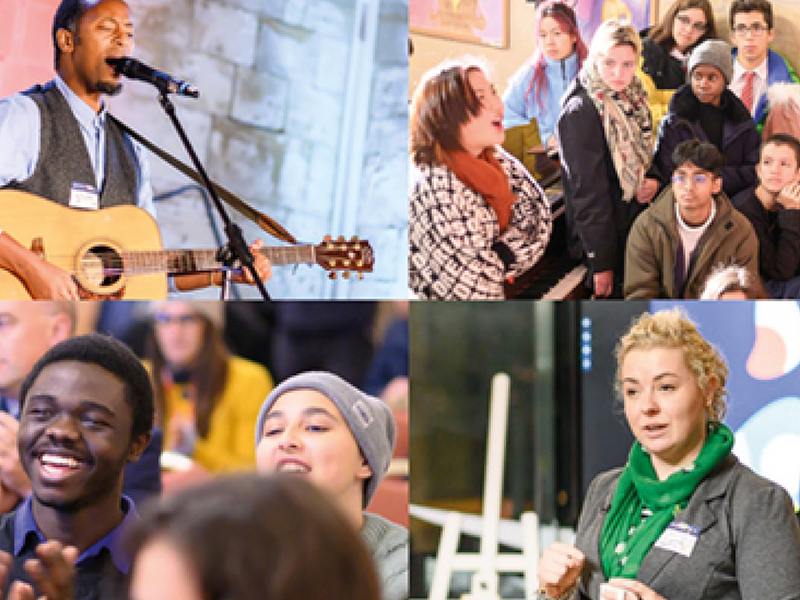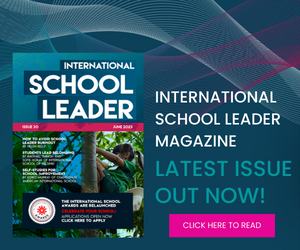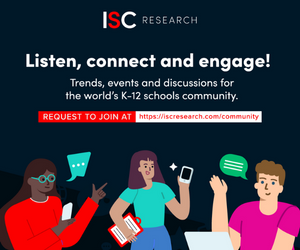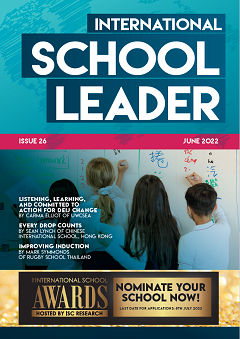Centred in community, inspiration and action, the Festival of Hope is an initiative created by the International Baccalaureate (IB) that aims to create spaces for millions of young people to speak up and turn complex challenges into positive action and hope. It is an inquiry led by youth to explore what it will take to inspire and transform humanity and address the complex challenges that they feel strongly about.
In live, in-person and virtual spaces, the IB has brought together diverse voices and experiences, hosting interviews, workshops and opportunities for action.
This article gives insight into the lives of students at UWC Atlantic College (AC) and their exploration of the concept of hope as they worked with the IB to host the Festival of Hope in Wales.
By Alice Suppiah, with advice from Ayman Haque
This event gave us a space to reimagine and create an ownership of the ideas imbued in hope.
Initially, upon hearing that the IB wanted to partner with UWC Atlantic as the location for their day-long Festival of Hope we had been cynical. As most learn from experience, student life can be turbulent – the experiences felt by students at UWC Atlantic being no exception. Not only do we balance the vast variety provided in our academics, we emphasise the importance of understanding what it means to be a changemaker. So hearing that we would be working with an international organisation whose ambition was to talk about hope made us question its authenticity. However, this was at a first glance.
As we started our work with them we began to see the opportunity this event gave us. It was a space to reimagine and create an ownership of the ideas imbued in hope, to define a direction and start a conversation about what we can do with hope.
So how were we to articulate this? After meetings with the organisers of the events and the help of Marija Uzunova Dang (our energetic motivator and Vice Principal, Learning Innovation), our ideas began to take shape. Focusing on what hope meant to us, our understanding, experiences and perceptions of it, we concluded we needed to find a way to reclaim it. What we created became the foundations on which the event could be curated, in an honest and truthful way. A way in which we could also participate with integrity. We decided to co-produce a manifesto to express our voices, and to open and frame the event – a piece of poetry to encourage social impact. Our event started by sharing this manifesto of hope.
Reclaiming hope
This is for you.
You, who are angry about your efforts of change that seem to go nowhere.
Who are tired, whose ideas and ambitions have been brought up, talked up, only to be let down, time after time.
Who are scared, whose shoulders carry the burden of responsibility, who fear the expectations crushing you to the point where you stop believing.
It’s easier to accuse faraway men in suits.
It’s easier for them to accuse you.
The blame goes back and forth until you forget why you started.
Ask yourself – who does that serve?
You see the thing is.
We longed for role models that actually meant something.
People to follow, people that have the courage to walk in front.
But we can see through clichés and fake promises for a better tomorrow.
So we have to become our own leaders.
This is not a confrontation.
And it is not a generational showdown.
It is an invitation to join.
You have a responsibility to make the world a better place.
The fate of our planet is in your hands.
This has been shouted at you since before you learned how to ride a bike.
Us too, our ears are numb.
This is not another reminder of how you can change the world.
Instead remember:
Just to have hope is not enough, hope requires action.
The work is hard enough, don’t waste yourself performing.
Hope is politically impactful.
It is hostile to the unjust status quo.
Hope is ambiguous, so use the past as inspiration for hope.
And recognise how far we have come.
When you take on this work, you stand in the legacy of those who secured workers’ rights.
Who gave women a voice, who abolished slavery, who made it possible for you to be here today, talking about something as trivial as hope.
Imagine defeat, how that would feel.
Because it’s possible, if not likely, if not already here.
And imagine defeat without even trying.
Those feelings are motivation, not an obstacle.
Create space for these emotions.
Curated by Maja Notara and Carmen Henick
Just to have hope is not enough; hope requires action
Hope is a contested concept, as we explored through talks, activities and discussions we had throughout the day. To take action is to create social impact and this was explored by the range of speakers and performers.
JP Bimeni, an artist, musician and graduate of Atlantic College, performed an original song sung in his home language called ‘Agahengwe’, meaning ‘the purest piece of peace’. It expressed peace and hope, serving as a reminder to all who heard it of the power and meaning brought through the medium of sound and music. This, in contrast to the later talks and discussions given, was an unconventional form of action, through the medium of art.
The event’s atmosphere and content were visualised by visual sensemaker, Annika Varjonen, whose drawings and models followed our narrative expressing how hope can be created. A large monitor screen allowed everyone to see her real-time sketching. It was an impactful way of consolidating the rare knowledge and the variety of paths uncovered and shared throughout the event by the speakers.
Another form of action inspired by hope was the power of activism. This was unpicked by Arifa Nasim, an advocate to end gender-based violence, as she explained what it means to pick your battles. She demonstrated how we are all fighting the same fight, in different arenas, for differing reasons, but with the same drive. She showed us what the reality of social impact was, its attainability, and how there was no such thing as small change.
These are only a brief summary of just some of the speakers and messages they shared. There were also interactive workshops to give us insight into real-life applications of social impact.
Hope is a tool everyone has
As our Festival of Hope came to a close, it was clear that we had allowed room for people to listen and reflect on the different ways we all experience and understand hope. Through stories from successful youth and alumni, in differing paths of life we were able to learn to hold our strength headfirst into the darkness. It has inspired many of us to look inward and search for a light where not even a candle can be lit. And like the manifesto stated, we are all fighting the same fight, in different arenas, for differing reasons, but with the same drive.
Hope comes in different forms, and cannot always be seen, but it is always there. Hope is a tool that everyone has. It’s your choice whether or not you use it.
Alice Suppiah and Ayman Haque are IB Diploma students at UWC Atlantic College. They take on many leadership responsibilities at the college and were instrumental in making the Festival of Hope Wales a great success. If you’d like to find out more about IB Festival of Hope, visit www.ibo.org/festival-of-hope
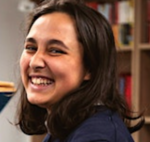 Alice Suppiah
Alice Suppiah
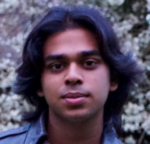 Ayman Haque
Ayman Haque
